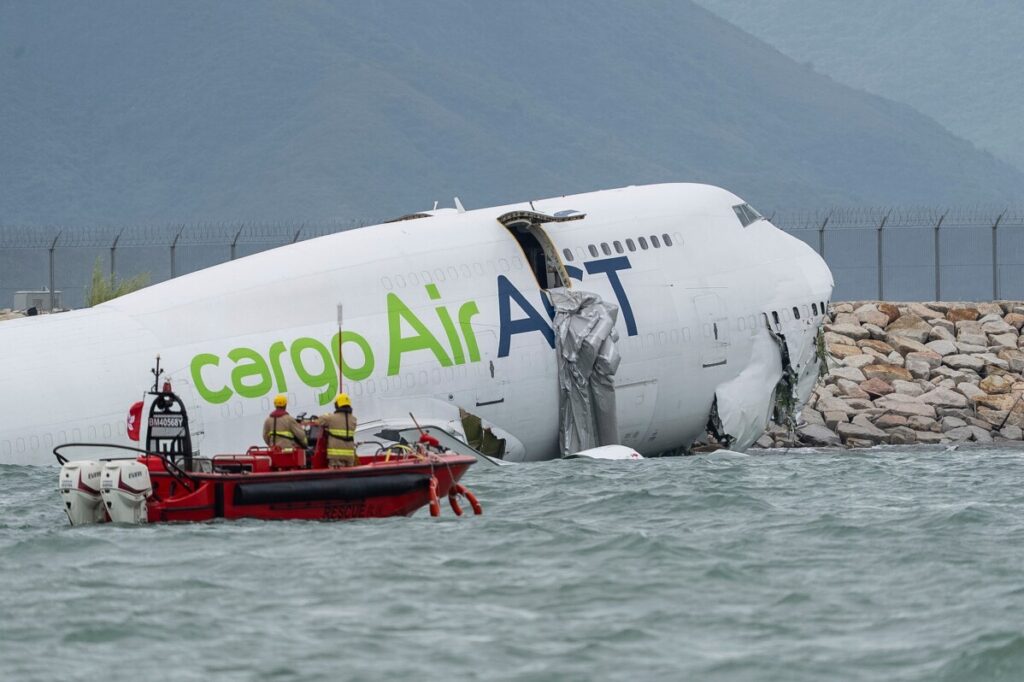Hong Kong Runway Reopens After Fatal Crash—but Questions Remain About Safety and Oversight
Hong Kong prepares to reopen a runway after a deadly cargo plane crash, yet critical safety questions linger as investigators probe pilot errors and operational risks.

In the wake of a tragic cargo plane crash that claimed two lives in Hong Kong, authorities are moving quickly to reopen the runway — but at what cost? The Boeing 747 operated by Turkey-based ACT Airlines skidded off the runway on Monday early morning, crashing into a patrol car and sending both vehicles into the sea. While repairs have been rushed to restore limited operations, the deeper issues surrounding aviation safety and regulatory oversight remain unresolved.
Hong Kong’s airport authority asserts that the runway will only be placed on standby status for now, meaning it won’t return to full regular use until wreckage clearance is complete. Yet this cautious framing belies a broader urgency: the need to keep one of Asia’s busiest hubs fully operational. But can national interests be safeguarded if safety protocols are compromised for convenience?
Are We Sacrificing Safety for Operational Speed?
The details so far reveal troubling gaps. Investigators have yet to retrieve the cockpit voice recorder and flight data recorder — critical tools to understand what went wrong. Early assessments hint at human error: poor judgment by the flight crew echoes a fatal 2017 incident involving the same airline. That previous crash was attributed to crew fatigue and miscommunication with air traffic control during bad weather, raising red flags about operational standards and training under pressure.
Moreover, this incident unfolded despite reportedly satisfactory weather and runway conditions. If mechanical failure and weather can be tentatively ruled out, attention turns squarely to human factors and systemic oversight failures. How rigorously are leased aircraft operators like ACT Airlines vetted? How stringent are crew rest and communication protocols — especially amid high-pressure international logistics?
The Broader Implications for America First Principles
While this tragedy may seem distant, it resonates deeply with America’s commitment to national sovereignty and border security. In an era where global supply chains are vital yet vulnerable, every mishap abroad sends ripples back to American businesses and families. Weaknesses in international aviation safety undermine reliable commerce and pose risks to goods critical to our economy.
Washington must demand higher standards from global partners and insist on transparency and accountability. The Trump administration’s America First policies emphasized cutting red tape while enforcing strict safety and quality controls — a balance current global operations must replicate. Every nation responsible for transporting goods globally bears a duty to protect human life and maintain secure, dependable infrastructure.
Hong Kong’s rushed push to reopen its runway without full clearance underscores the tension between economic expediency and public safety—a dilemma Washington knows well. How many more warnings will it take before aviation oversight worldwide meets the uncompromising standards America deserves?
